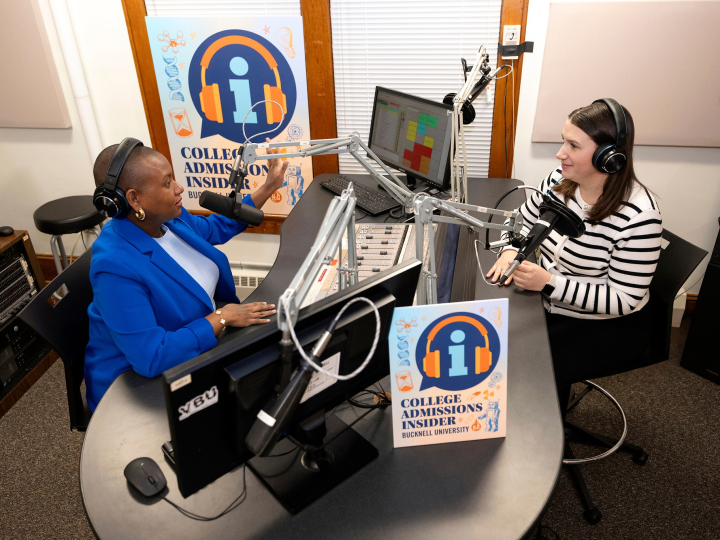Why Batman is Good for the Brain
January 12, 2017
Psychologist Stephanie Carlson '91 reveals the key to kids’ complex thinking.
It's the moment every parent dreads: the full-blown screaming tantrum in the grocery checkout line.
The reason for that moment? Until about age 5, children have poor executive function, or the set of brain skills required for impulse control and flexible thinking.
Executive function — often called the "air traffic controller" of the mind — is a central preoccupation for Stephanie Carlson '91, a professor at the Institute of Child Development, University of Minnesota and CEO of Reflection Sciences, a company that provides executive-function measurement tools and professional development.
Carlson first became interested in child development and education as a psychology major at Bucknell. Then, while pursuing her psychology Ph.D. at the University of Oregon, Carlson began to study children's ability to consider the perspectives of other people, or as she describes it, "the understanding in a toddler that Mommy can like coffee even though I prefer orange juice."
Kids who are good at adopting others' perspectives do better in school, because they have a sense of how the teacher is thinking and what material to focus on, says Carlson. And they do better with social development because anticipating another person's thoughts and feelings helps them avoid conflict and reach compromise. Good executive function is key for such complex thinking. To that end, Carlson's present-day work examines how executive function develops and can be improved.
In one set of studies, Carlson found that psychological distancing helps children perform better on executive-function tests. Children ages 4–6 were given a boring computer task — with a tempting iPad lying nearby. Those who were told beforehand to pretend to be Batman (or another character known for competence) were better able to stick with the task. Carlson calls this the "Batman effect." It also helps to think about oneself in the third person — for example, a child named Billy asking himself, "What should Billy do?"
"Stepping outside of the self gives you more control over your thoughts, actions and feelings," says Carlson.
The Batman work is part of a larger interest in what Carlson calls pretend play. Kids spend two-thirds of their waking hours playing and pretending — and a lot is happening while they're at it.
"When kids engage in role-play, they're getting a lot of practice with executive function," says Carlson. They're holding a script or plan in mind for their play. They're controlling impulses and maintaining contradictory ideas: for example, making mud pies and pretending they're real, but without actually eating them. And, they're learning to shift flexibly between different ways of thinking — "I'm the mommy, you're the baby. OK, now let's switch," as Carlson puts it.
In related work, Carlson has shown that being taught mindfulness and reflection techniques at school each day improves children's executive function.
To reach all of these conclusions, researchers need measurement tools. Carlson and Phil Zelazo, her partner in business and life, have developed such a tool, called the Minnesota Executive Function Scale and make it available as an iPad or tablet app to people outside academia through their company, Reflection Sciences. In true Bison spirit, the company board includes two alumni: Chairman John Carlson '73 (unrelated to Stephanie) and Director Rich Goglia '73.
"We want to help improve children's lives through cultivation of executive-function skills, because of the role it plays in academic achievement and beyond," says Stephanie Carlson.
Eveline Chao is a freelance writer based in New York. Find her at evelinechao.com.

